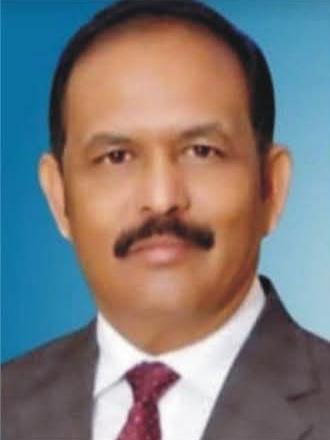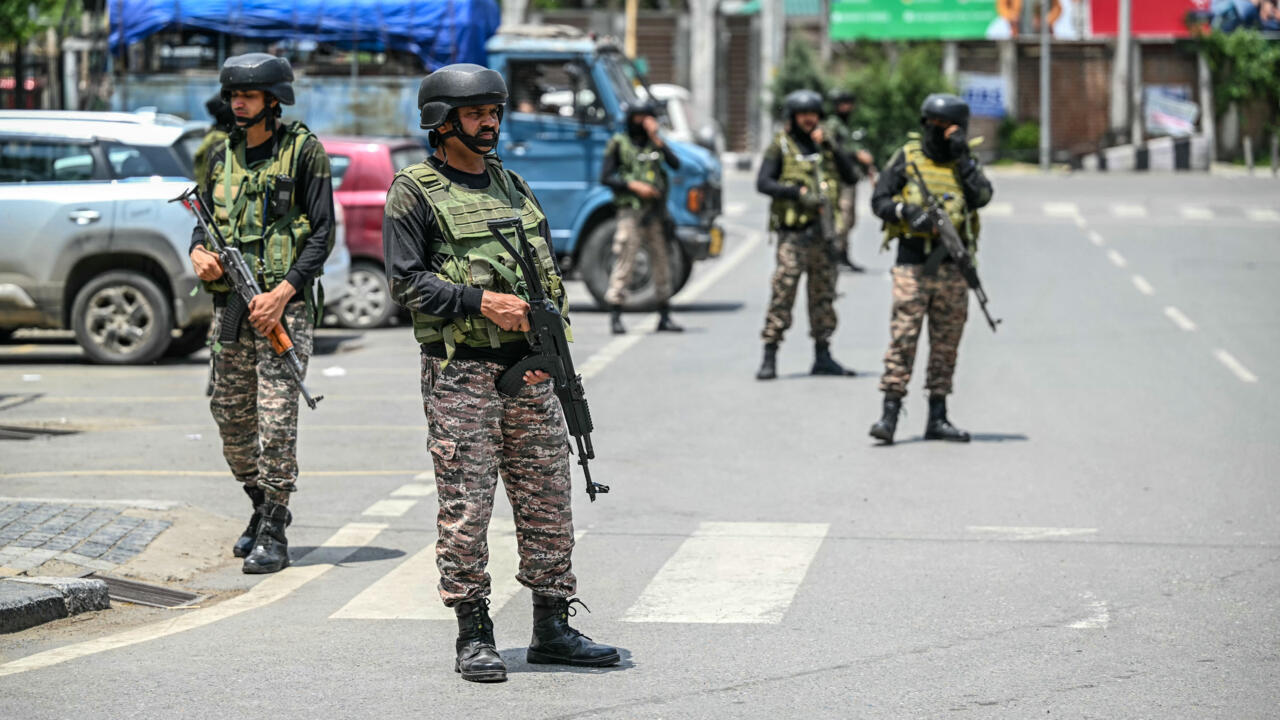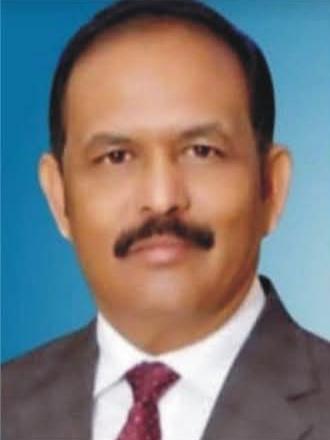The recent conviction of three prominent Kashmiri women leaders—Asiya Andrabi, Fahmeeda Sofi, and Nahida Nasreen—by a National Investig
The victory of the Muslim mayor in New York: the victory of religion or democracy? By Dr. Emanuel Adil Ghouri

In the recent elections for mayor of New York, a major city in the United States, a young Muslim named Zahran Mamdani has achieved a historic victory, even though US President Donald Trump, a resident of New York, was against this candidate, and not only him, but many other billionaire capitalists were also against him Despite this, the fact that this young man was successful in this election shows that there is true democracy there, and that force is not used to suppress anyone politically
Article 3, Section 1v of the US Constitution clearly states that no religious qualification shall be required for any public office or position of trust. There is no requirement to be a Christian, Muslim, Hindu, or Jew to be elected mayor.
Mamdani's becoming a mayor in the United States is not politically unique there. Before him, Abdullah Hussein Hamoud (Arabic: عبدالله حُسَيْن حمود) is an American politician who has served as the 7th mayor of Dearborn, Michigan since 2022.
The Pakistani public and media are calling Mamdani's success a Muslim success in daily talk shows and news headlines.In my opinion, this is not a victory for any person or religion, but rather a victory for a manifesto that expresses the needs and aspirations of the local people. It is a victory for true democracy, transparent elections, a democracy free from religious bias, and interfaith harmony. A clear example of this is Halfway through Zahran Mamdani's final campaign rally in Queens on October 26, 2025, a Jewish rabbi, a mosque imam, and a priest took turns praising the Democratic Socialist Mamdani in their speeches, and praying for his success.
In this city of 6 million people, the first majority are Christians, the second is Jews, while Muslims are in third place. According to the AP Voter Poll, about 4 percent of New York voters are Muslim. Of these, three percent are supporters of Mamdani.
Mamdani's support was particularly high among voters with no religious affiliation (75%) and those who identify with "other religions" (70%) - including Muslims, -With 42% Protestant or other Christian voters and 33% Catholic voters, in the overall religious bloc, 21% of voters now identify as Protestant or other Christian, 27% as Catholic, 15% as Jewish, 14% as other religions, and 24% as having no religious affiliation.
Despite the wide-ranging differences between Jews and Muslims over the Israeli-Palestinian conflict, the Progressive Jewish Group in New York has given Mamdani its full political support.
The Muslim American community in New York was only able to raise $15,000 for campaign expenses, which was too little for election expenses. So two Christian investors, Elizabeth Simmons, contributed $250,000 and Tom Preston, $200,000.
Jewish leader Rabbi Sharon Kleinbaum, spiritual leader of the Beth Simchat Torah congregation in Manhattan, urged Muslims, Christians and Jews to build a shared future in the city, so this joint struggle is not about race, religion or belief, but about making New York livable for all.
Mamdani is inspired by senior American Muslim politician Attorney Arif Najmi, whose political ideology he has taken to the field. Arif Najmi believes that now is the time for the Muslim American community to represent itself in elected bodies and play an effective role in policy decision-making.
Instead of stopping this effort by its minority, the majority has given way to it, but has made it possible by joining it.
Asif Ali Zardari, Bilawal Bhutto and Prime Minister Mian Shahbaz Sharif have sincerely congratulated Mamdani on his success. Is it possible that these figures and their parties, who are fighting for democracy, will provide similar opportunities to minorities in Pakistan? In the upcoming local body elections, will the PPP make a Hindu the mayor of Karachi and the PML-N a member from its minority wing as the mayor of Lahore, to prove that Pakistani politics and democracy are not biased?
Article 3, Section 1v of the US Constitution clearly states that no religious qualification shall be required for any public office or position of trust. There is no requirement to be a Christian, Muslim, Hindu, or Jew to be elected mayor.
Mamdani's becoming a mayor in the United States is not politically unique there. Before him, Abdullah Hussein Hamoud (Arabic: عبدالله حُسَيْن حمود) is an American politician who has served as the 7th mayor of Dearborn, Michigan since 2022.
The Pakistani public and media are calling Mamdani's success a Muslim success in daily talk shows and news headlines.In my opinion, this is not a victory for any person or religion, but rather a victory for a manifesto that expresses the needs and aspirations of the local people. It is a victory for true democracy, transparent elections, a democracy free from religious bias, and interfaith harmony. A clear example of this is Halfway through Zahran Mamdani's final campaign rally in Queens on October 26, 2025, a Jewish rabbi, a mosque imam, and a priest took turns praising the Democratic Socialist Mamdani in their speeches, and praying for his success.
In this city of 6 million people, the first majority are Christians, the second is Jews, while Muslims are in third place. According to the AP Voter Poll, about 4 percent of New York voters are Muslim. Of these, three percent are supporters of Mamdani.
Mamdani's support was particularly high among voters with no religious affiliation (75%) and those who identify with "other religions" (70%) - including Muslims, -With 42% Protestant or other Christian voters and 33% Catholic voters, in the overall religious bloc, 21% of voters now identify as Protestant or other Christian, 27% as Catholic, 15% as Jewish, 14% as other religions, and 24% as having no religious affiliation.
Despite the wide-ranging differences between Jews and Muslims over the Israeli-Palestinian conflict, the Progressive Jewish Group in New York has given Mamdani its full political support.
The Muslim American community in New York was only able to raise $15,000 for campaign expenses, which was too little for election expenses. So two Christian investors, Elizabeth Simmons, contributed $250,000 and Tom Preston, $200,000.
Jewish leader Rabbi Sharon Kleinbaum, spiritual leader of the Beth Simchat Torah congregation in Manhattan, urged Muslims, Christians and Jews to build a shared future in the city, so this joint struggle is not about race, religion or belief, but about making New York livable for all.
Mamdani is inspired by senior American Muslim politician Attorney Arif Najmi, whose political ideology he has taken to the field. Arif Najmi believes that now is the time for the Muslim American community to represent itself in elected bodies and play an effective role in policy decision-making.
Instead of stopping this effort by its minority, the majority has given way to it, but has made it possible by joining it.
Asif Ali Zardari, Bilawal Bhutto and Prime Minister Mian Shahbaz Sharif have sincerely congratulated Mamdani on his success. Is it possible that these figures and their parties, who are fighting for democracy, will provide similar opportunities to minorities in Pakistan? In the upcoming local body elections, will the PPP make a Hindu the mayor of Karachi and the PML-N a member from its minority wing as the mayor of Lahore, to prove that Pakistani politics and democracy are not biased?
You May Also Like
Open Doors, an international organization that provides protection to vulnerable Christians around the world, released a World Watch List in 2025,
Accepting the Lord Jesus Christ and following His commandments is a difficult and arduous path. Every step of the way is fraught with suffering, pe

"Trial of Pakistani Christian Nation" By Nazir S Bhatti
On demand of our readers, I have decided to release E-Book version of "Trial of Pakistani Christian Nation" on website of PCP which can also be viewed on website of Pakistan Christian Congress www.pakistanchristiancongress.org . You can read chapter wise by clicking tab on left handside of PDF format of E-Book.








